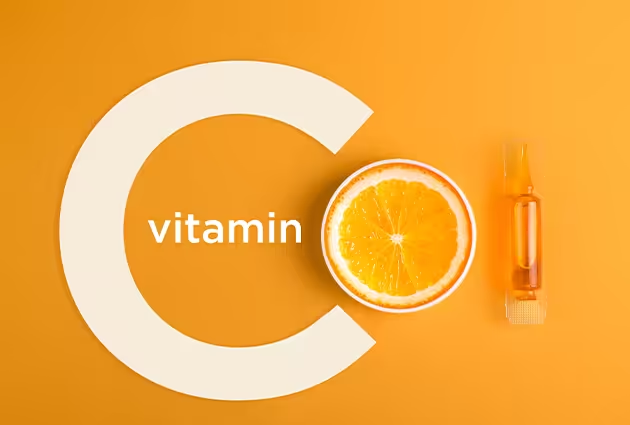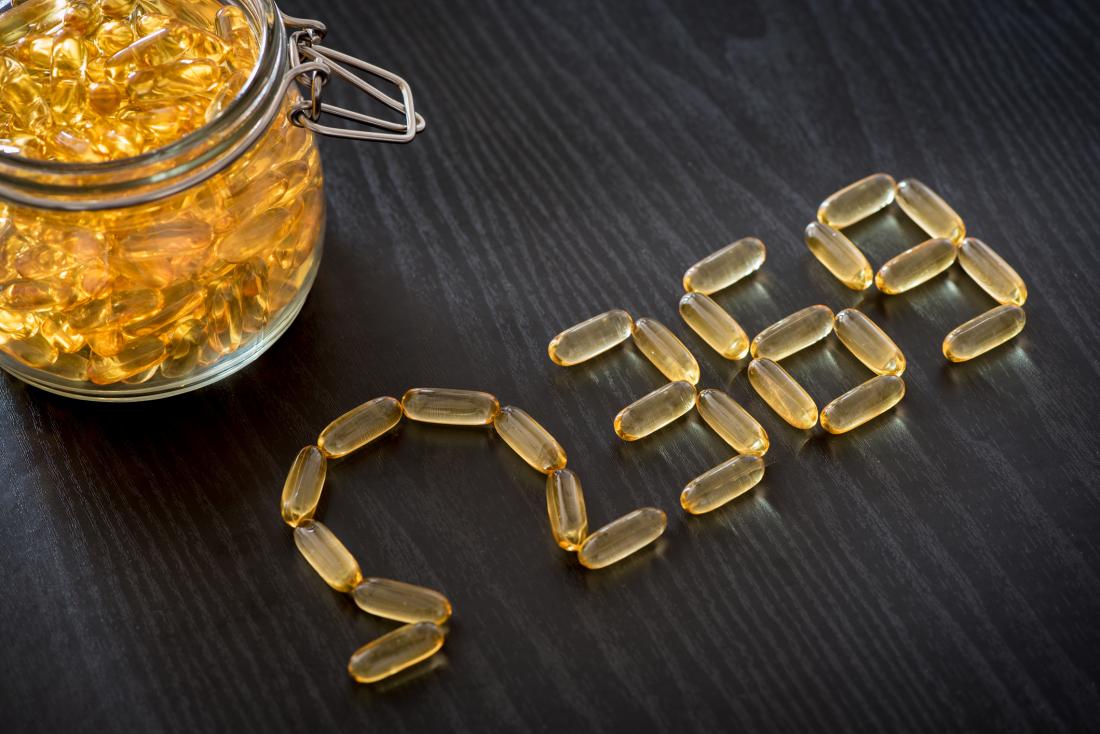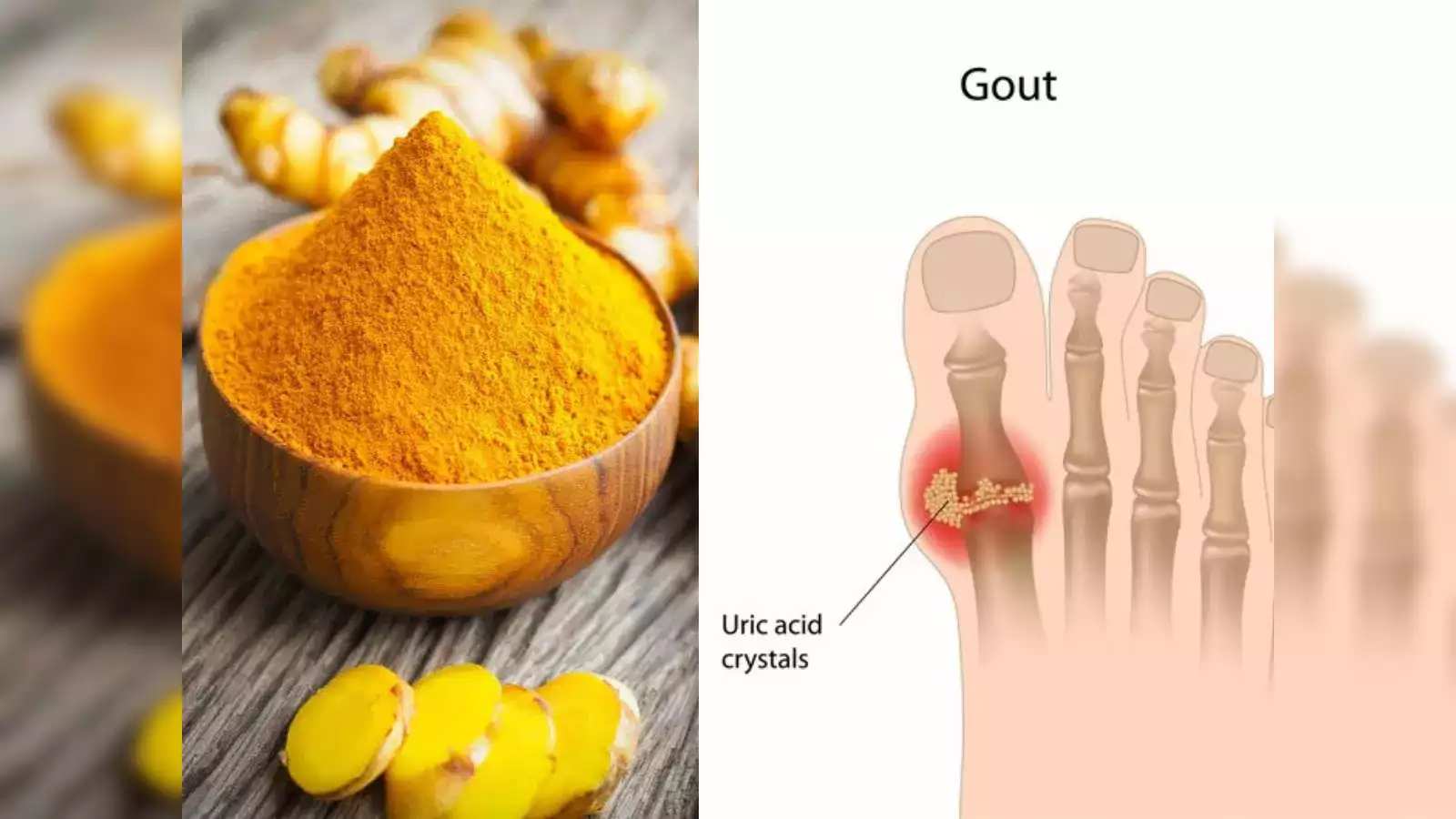
Uric acid is a natural waste product produced from the digestion of certain foods that are high in purine. Purine is a substance found in certain foods and is also naturally produced by the body. Some of the purine-containing foods include seafood, red meats such as beef, pork, and lamb, organ meat like liver and kidney, and alcohol. Increased intake of foods rich in purine is considered a key element in increasing the levels of uric acid in the blood. The amount of uric acid in the blood above the value of 7 mg/dL is considered high and is termed hyperuricemia.
Urinary acid is normally filtered by your body with the help of your kidneys and excreted through urine. If you consume too much purine in your diet or if your body finds it difficult to get rid of this byproduct fast enough, uric acid can build up in your blood. This buildup of uric acid in several parts of the body can cause various health problems, one of which is gout. Gout is a condition where increased levels of uric acid get deposited as crystals in various tissues and joints, leading to swelling of the joints. Gout may also cause pain and redness in the joints. While dietary changes and lifestyle modifications are important for managing gout, certain supplements also help reduce symptoms and prevent flare-ups.
Supplements
Vitamin C
There is some evidence that vitamin C helps lower uric acid levels in the blood. This is because vitamin C is known to increase the excretion of uric acid by the kidneys, which further prevents the buildup of uric acid in the body. Studies on the supplementation of uric acid for gout produced mixed results. However, it is also important to keep in mind that, while vitamin C may help lower uric acid levels, it cannot completely cure gout. Vitamin C can be found in supplement form, as well as in fruits and vegetables such as oranges, kiwi, strawberries, and broccoli.
- A study in 2021 studied the association between oral vitamin C supplementation and serum uric acid. The study findings showed that vitamin C supplementation had a significant effect on lowering serum uric acid.
- Another study in 2005 evaluated the effects of vitamin C supplementation on the serum concentration of uric acid. The study found that supplementing with 500 mg/day of vitamin C for two months reduced serum uric acid, implying that vitamin C may be useful in the prevention and management of gout.

Omega 3 Fatty Acid
Omega-3 fatty acids might also be helpful for people with gout, as they have anti-inflammatory properties that can reduce the inflammation that is caused by gout.
- A case-control study in 2015 was conducted with a group of men over 60 years of age who had been diagnosed with gout. They had blood levels of serum omega 3s measured and a history of attacks over the last year. It showed that the individuals with the lowest levels of omega-3s had more than twice as many attacks as those with high omega-3 levels. Thus proving that omega-3 fats might be used to stop acute gout attacks.
- Another study published in 2020 found that consumption of fish rich in n-3 fatty acids is associated with a reduced risk of recurrence of gout flares when adjusted for overall purine intake, whereas n-3 supplementation alone when self-administered was not associated with a lower risk of recurrence.
Omega-3 fats taken in the form of fish oil and not directly from fish in the diet are recommended. This is because some types of fish, such as shellfish, contain higher levels of purines, which can aggravate gout by increasing the levels of uric acid. Fish oils do not usually contain high levels of purines if they are distilled and processed properly. Fish oil supplements can give you the health benefits of the omega-3 fats of fish without the purine.

Cherries
One of the natural treatments for gout flare-ups is cherry juice. Cherry juice reduces uric acid levels in the body to cure gout flare-ups.
- A study in 2012 evaluated the effects of cherry consumption and the risk of recurrent gout attacks. The study involved 633 participants with gout and found that individuals who ate a minimum of 10 cherries a day were 35% less likely to experience gout attacks.
- Another study in 2019, which studied the role of cherries in the management of gout, found that anthocyanin, an antioxidant substance found in cherries, may be beneficial in the treatment of gout symptoms.
The most interesting thing about cherries, and why they are so good against gout, is that they contain a compound called anthocyanins. Anthocyanins are plant-based dyes that provide colors such as dark red, purple, or blue to various fruits and vegetables. They have anti-inflammatory properties, so consuming cherries regularly could help counteract some of the adverse effects of increased uric acid crystals that cause inflammation in joints.
If you are diagnosed with gout or have increased levels of uric acid and are thinking about adding cherries to your diet, you can choose tart cherries, and blueberries, as they are high in anthocyanin, cherry juice, and cherry extract in the form of capsules or powder. Avoid products with additives or added sugars.

Turmeric
Turmeric, popularly known as the "wonder spice," is a powerful anti-inflammatory agent that is frequently used in traditional medicine to treat inflammation. Curcumin, the main component in turmeric, is responsible for its potent anti-inflammatory actions. This can aid in reducing the inflammation produced by gout. Curcumin, by lowering inflammation, can also help alleviate the joint pain caused by gout. Turmeric can be consumed daily by including it in foods and beverages such as soups, smoothies, curries, and milk. Turmeric is also available in pills and gummies. However, it is considered safe when incorporated into food.
- A study in 2019 found that curcumin therapy reduced the number of inflammatory genes that trigger inflammation throughout the body, especially in the joints when people suffer from gout. The study also found curcumin reduced inflammatory pathways related to gout. This may help scientists develop a new approach to prevent acute gout episodes.

Conclusion
In conclusion, it is important to understand that these supplements may help lower uric acid levels and manage the symptoms caused by gout, but they cannot completely cure the condition. It is necessary to consult a healthcare professional before taking any of the supplements, especially if you are taking medications or have underlying health conditions. Furthermore, it is also important to follow a healthy diet and lifestyle, which may include avoiding foods that are high in purines, such as red meat, seafood, and alcohol, and staying hydrated by drinking plenty of water.
Frequently Asked Questions (FAQs)
1. Can diet affect gout?
Yes, diet plays a crucial role in managing gout. Certain foods high in purines, such as organ meats, seafood, red meat, and alcohol, can trigger gout attacks. It is important to limit the intake of these foods and focus on a balanced diet that includes plenty of fruits, vegetables, whole grains, low-fat dairy products, and lean proteins.
2. Can losing weight help manage gout?
Yes, losing weight can be beneficial for individuals with gout, especially if they are overweight or obese. Weight loss can help lower uric acid levels and reduce the frequency and severity of gout attacks.
3. Are there any medications available for treating gout?
Yes, there are medications available to manage gout. Nonsteroidal anti-inflammatory drugs (NSAIDs), colchicine, and corticosteroids are commonly prescribed to relieve pain and inflammation during gout attacks. Long-term management may involve medications that lower uric acid levels, such as allopurinol or febuxostat.
4. Can natural remedies or supplements help with gout?
Some natural remedies and supplements may help manage gout symptoms, but their effectiveness varies. Tart cherry juice, turmeric, vitamin C, and omega-3 fatty acids have shown potential in reducing inflammation and lowering uric acid levels. However, it is important to consult with a healthcare professional before starting any supplements.
5. Can lifestyle changes prevent gout attacks?
Yes, making certain lifestyle changes can help prevent gout attacks. These include maintaining a healthy weight, following a balanced diet low in purines, staying well-hydrated, limiting alcohol consumption, and engaging in regular exercise.
6. When should I seek medical attention for gout?
It is advisable to seek medical attention for gout if you experience intense joint pain, swelling, and redness that lasts more than a few days, or if you have recurrent gout attacks. A healthcare professional can provide an accurate diagnosis and recommend appropriate treatment options.
Disclaimer: The information and other content provided in this blog, or in any linked materials, are not intended and should not be construed as medical advice, nor is the information a substitute for professional medical expertise or treatment. If you or any other person has a medical concern, you should consult with your healthcare provider.


.png)


